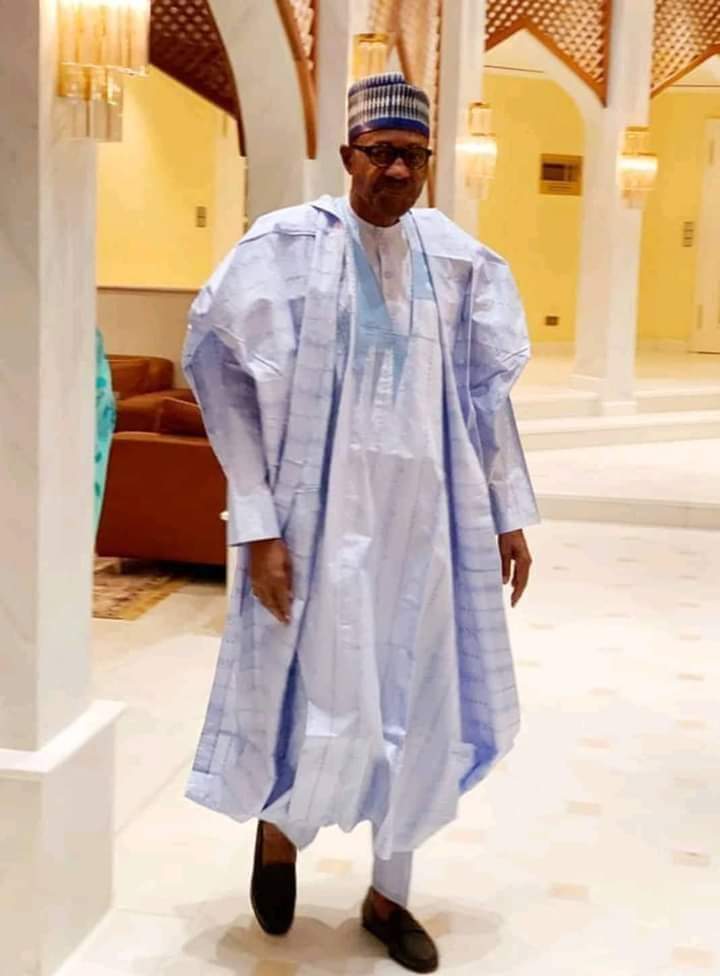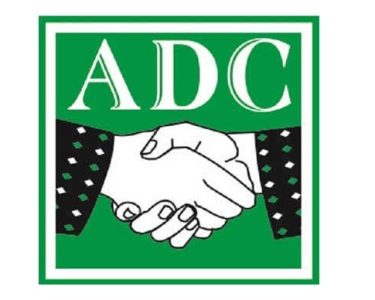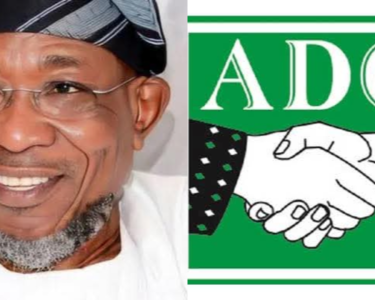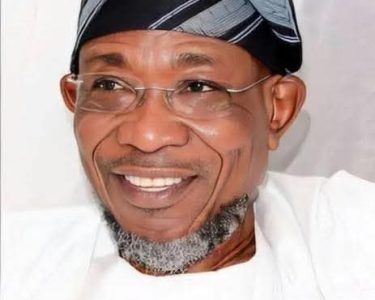Muhammadu Buhari, 76, is a child of reaction. At his first emergence as president-elect, post-March 2015 elections, the citizenry saw him as a saviour from the People’s Democratic Party (PDP)’s 16-year rule.
En route the polls, contemporary boondocks legend mooted parables of him as a warrior in wolf-skin vest, brandishing a shield of steeled morality and a stone-axe, forged to hack down monuments, that, the corrupt ruling class built to entrench corruption.

His second coming on February 23, 2019, like his first, was equally borne of reaction. But he never talks about how people see him: be it as the ‘cloned Jubril of Sudan,’ an ‘unrepentant nepotist,’ ‘religious fundamentalist’ or devoted ‘Change’ agent;’ Buhari adopts the eloquence of silence.
He responds with persuasive governance, argued stalwarts of his party, the All Progressives Congress (APC).


Thus, in the wake of the February 23 elections, his party was upbeat though wary of losing to his major rival, former Vice President (VP), Atiku Abubakar of the People’s Democratic Party (PDP).
On February 27, when electoral umpire, the Independent National Electoral Commission (INEC), pronounced Buhari as Nigeria’s new president-elect, pundits described it as a befitting climax for what was a hard-fought electoral contest.
Shortly after 5 a.m, INEC officials declared Buhari victor over Abubakar, by a wide margin. Buhari won by 3.9 million votes, having garnered 15.2 million to Atiku’s 11.3 million.
There is no gainsaying that Buhari’s victory signals a watershed in the country’s duel with corruption, discord and random bigotries.
In the view of most Nigerians and international media, his re-election on February 23, 2019, was far more symbolic for the nation’s democracy and its struggle against the corruption canker.
For instance, the New York Times opined that it “was in many ways a referendum on honesty, as voters once again embraced a candidate who held up a broom at rallies, declaring to sweep away the graft that has given the nation a bad reputation worldwide.”
The Buhari phenomenon
Buhari’s recent victory at the polls, no doubt, ventilates the phenomenon which he has become. In 2003, 2007 and 2011 when he vied, unsuccessfully, for the presidency, his votes were confined to the North, most especially the North West.
His hitherto limited appeal was, however, attributed to his politics. Buhari rejected the politics of expediences; he wouldn’t yoke with the divide he considered anathema to his visions of statehood.




Hence during his unsuccessful runs for the presidency, he suffered the colourful labelling of a dreamer and fundamentalist, by arch rivals and critics. His gospel of anti-corruption was considered an oxymoron. A revolutionary’s utopia. But Buhari set out to change that, forging an alliance that birthed the All Progressives Congress (APC) with two-time Lagos governor, Bola Tinubu, and a host of others.
In 2015, he virtually exploded in the political scene and began to enjoy a cult following rare to find; in fact, comparable to the First and Second Republics political phenomena like the late Sardauna of Sokoto, Sir Ahmadu Bello, Aminu Kano, Dr. Nnamdi Azikiwe and Chief Obafemi Awolowo.
Of course, the big merger that crystallised into APC helped to boost the revolution but the party was only a platform to give that ‘revolution’ that he is now, an expression.
So, by 2015, Buhari began to sweep across the North and South, especially the South West and a few states in the South South and South West. He started garnering large chunks of votes from states where he was not getting votes before.
The Buhari revolution displaced the PDP, which had bestridden the political space for 16 years and had boasted that they would rule for 60 years. Buhari’s APC won a landslide in gubernatorial elections, defeating powerful state governors, and ending the former ruling party’s dominance. The APC won 19 of the 28 governorship seats in results declared from the 2015 polls.
It was indeed the biggest defeat for the PDP since it assumed power as ruling party in 1999.
The party lost for the first time in key northern states like Katsina and Kaduna, the home of outgoing Vice-President Namadi Sambo. Kaduna State gubernatorial candidate of the All Progressive Congress (APC), Nasir El Rufai, beat incumbent Governor Mukhtar Ramalan Yero of the Peoples Democratic Party (PDP) to the state’s most coveted seat.
The PDP also lost control of Adamawa, one of three states badly hit by terrorist group, Boko Haram’s insurgency; traditional PDP states were overthrown and became APC states. In the widespread tsunami, political giants began to fall.
Politicians, hitherto known for their sagacity and cult following were humbled and stripped of their clout, in the wake of the Buhari revolution in 2015.
Notable among them was the then sitting president, Goodluck Jonathan, whom he defeated decisively at the March 28, 2015 polls. Then there was Ahmed Makarfi, ex-Kaduna governor, who failed to return to the Senate. Then there was Governor Gabriel Suswam of Benue State, who was denied a shot at the Senate by APC’s Barnabas Gemade. As an incumbent governor, Suswam was tipped to win the contest by the bookmakers, but Gemade, a former PDP chairman, who contested on the platform of APC, polled a total of 140, 715 votes to beat Suswam’s 118,603 votes.
Also stripped by the Buhari gale was PDP’s Governor Muazu Babangida Aliyu of Niger State. Aliyu, who was of the most outspoken governors and Chairman of the Northern Governors Forum, was defeated in the race for the Senate by David Umaru of the APC despite predictions otherwise. Umaru polled149,443 votes against Governor Aliyu, who scored a paltry 46,459 votes.
The Buhari revolution also claimed yet another casualty in Governor Isa Yuguda of the PDP in Bauchi State. Conflict of interests between Yuguda and other PDP stalwarts in the state ahead the general elections cost the then ruling party its dominance. The electorate voted en masse for APC’s Buhari and Governor Yuguda got walloped by Ali Wakili of the APC in the race for Senate .Wakili, now late, polled 341, 708 votes to defeat Yuguda who got 115, 575 votes.
Likewise, Governor Saidu Nasamu Dakingari of Kebbi State’s plan to proceed to the Senate failed unlike his former boss, Adamu Aliero, who contested in Kebbi Central Senatorial District. Dakingari sought his failed Senate ambition in Kebbi North.
The PDP suffered yet another defeat as the APC bested its candidate and incumbent governor in Kogi State, Idris Wada, in the governorship election; INEC had declared Yahaya Bello of the APC as the governor-elect of Kogi State, after the conclusion of the governorship polls which was declared inconclusive on November 22, 2016.
A supplementary election was held on December 5, 2016 in 91 polling units across 18 local government areas by which APC’s Bello emerged victor.
The APC machinery was so effective that it truncated the senatorial dreams of several PDP governors and those from other parties. Consequently, the APC became the majority in both chambers of the National Assembly (NASS), that is, the Senate and House of Representatives hitherto dominated by the PDP.
In 2019, however, there were fears, that, the PDP might stop Buhari, especially because of the propaganda and negative campaigns that had painted him in bad light as a fundamentalist, and a president who encouraged killer-herdsmen because they were supposedly his people.
Even before he revealed his decision to vie for a second term, opposition had begun to mount against his possible re-election. Former President Olusegun Obasanjo, who previously supported his ambition in 2015, against his estranged political godson, Goodluck Jonathan, fired the first salvo in a volley of attacks.
In his characteristic style, he warned Buhari against seeking re-election, accusing him of administrative inefficiency and mediocre management of the economy. The former president also tarred him as nepotistic, thus amplifying claims by other opposition figures who accused Buhari of making appointments from mainly his ethnic and regional enclave.
Corroborating Obasanjo, ex-Military President, Ibrahim Babangida, also advised Buhari against seeking a second term. However, the coalition of ex-Generals hardly daunted Buhari’s re-election pursuit as he declared his second term bid at a National Executive Council (NEC) meeting of his ruling party.
A series of unfortunate events, including the APC’s acrimonious primaries en route this year’s general elections and subsequent conflict of interests among the parties juggernauts deepened forebodings of Buhari’s feared rout at the polls.
The primaries led to massive defection of the APC’s top stalwarts to opposition parties. Most notable among the defectors were Senate President, Dr. Bukola Saraki, and Speaker, House of Representatives, Yakubu Dogara, who defected to the PDP.
Consequently, the ruling party lost its leadership of the National Assembly to arch rival, the PDP.
In spite of all that, Buhari’s revolution train remained unstoppable. As results of the presidential elections trickled in, it became clear that the incumbent president has consolidated his breadth and political capital; this time, he even garnered votes from areas he hitherto was declared unpopular: Nasarrawa, Abia, Anambra, Imo, Ekiti, Ondo, to mention a few, and the gap with which he beat his rival, Atiku Abubakar, was very wide.
A geopolitical analysis of the states won by Buhari shows that he won all the seven states in the Northwest, four in the Southwest, four in Northeast, and four in North central. Atiku, on the other hand, clinched the five Southeast states, all the six South South states, two in Southwest, two in North Central, and two in Northeast.
O to ge as Saraki’s nemesis
One major upset facilitated by the Buhari revolution, however, was the long-awaited ouster of Bukola Saraki, incumbent Senate President. The latter became one of the most expensive casualties of the Buhari political train; courtesy the “O to ge” revolution, Saraki lost his bid to return to the Senate in the next dispensation thus endingthe Saraki Dynasty in Kwara State.
There is no gainsaying that Saraki’s ouster became the greatest test case of the larger Buhari revolution. While it need be acknowledged that the people were already tired of the strangle-hood of the Saraki Dynasty and had yearned for a change, that change would have been impossible without the remarkable fillip of the Buhari revolution.
The political slogan, ‘O to ge’ meaning ‘Enough is enough,’ adopted by the APC, assumed a life of its own among Kwarans at home and abroad. The term, which simply means that the people have had enough of Saraki, and were ready to hop on the APC’s political train which assured them of untrammelled socio-economic progress and departure from the Saraki fiefdom. Although Saraki’s followers had responded to the resonant lingo with another refrain ‘Otunya’, which means ‘Onward with Saraki’s rule,’ it did not earn the favour or applause of the people.
Instead, the ‘O to ge’ movement bloomed even within Kwara’s apolitical circuits. Consequently, Saraki suffered an embarrassing defeat; Ibrahim Oloriegbe of the APC defeated him by polling 123,808 votes against the Senate President’s 68, 994 votes.
The Buhari revolutionary train thus garnered momentum even as the PDP’s political train sputtered in decline. Soon after INEC announced the results of the 2019 presidential and NASS elections, Obasanjo advised winners to show magnanimity in victory, saying losers should also accept defeat.
The former President was quoted as saying: “In any competition, there will always be winners and losers. That is what anybody in any competition must be prepared for as a good sportsman. Whoever that wins should show magnanimity. If I lose, I will also bow down graciously. That is what any competition is all about.
“If your purpose of going for any competition is that you must win at all costs, then that is no longer a competition. I know INEC will make amends for the shortcomings ahead of the next elections.”
Obasanjo’s latter counsel, undoubtedly, reflects the incontestable realities of the Buhari revolution. It further affirms his political capital and electoral worth even among his most virulent critics.
Some have called him a dreamer, but he silently disagrees, asserting his ‘truth’ in the tenor and measured steps of a revolutionary, seeking to change Nigeria. Buhari’s legacy extends beyond APC’s ‘Change’ mantra.
He proves the power of ethics, showing an entire generation that one passionate person can reshape the voting and life pattern of a nation.




